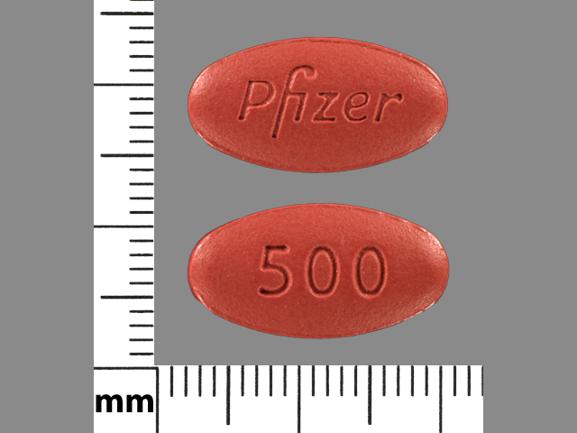Bosulif Disease Interactions
There are 6 disease interactions with Bosulif (bosutinib).
- Cardiovascular disease
- Fluid retention
- Bone marrow suppression
- Dehydration
- Liver disease
- Renal impairment
BCR-ABL tyrosine kinase inhibitors (applies to Bosulif) cardiovascular disease
Moderate Potential Hazard, Moderate plausibility.
Cardiovascular events, including arterial vascular occlusive events, peripheral arterial occlusive events and ischemic cerebrovascular events have been reported in patients receiving tyrosine kinase inhibitors. If acute signs or symptoms of cardiovascular events occur, patients should seek immediate medical attention. The cardiovascular status and risk factors of patients should be evaluated prior to therapy and cardiovascular monitoring and management should take place during treatment.
References
- "Product Information. Gleevec (imatinib)." Novartis Pharmaceuticals (2022):
- "Product Information. Sprycel (dasatinib)." Bristol-Myers Squibb (2006):
- "Product Information. Tasigna (nilotinib)." Novartis Pharmaceuticals (2007):
BCR-ABL tyrosine kinase inhibitors (applies to Bosulif) fluid retention
Moderate Potential Hazard, Moderate plausibility. Applicable conditions: Pleural Effusion, Congestive Heart Failure
Fluid retention occurs with BCR-ABL tyrosine kinase inhibitors therapy and may manifest as pericardial effusion, pleural effusion, pulmonary edema, and/or peripheral edema. Caution should be taken when using these drugs in patients with preexisting fluid retention or congestive heart failure. Monitor and manage patients using standards of care. Interrupt, reduce dose or discontinue therapy as necessary.
References
- "Product Information. Gleevec (imatinib)." Novartis Pharmaceuticals (2022):
- "Product Information. Sprycel (dasatinib)." Bristol-Myers Squibb (2006):
- "Product Information. Tasigna (nilotinib)." Novartis Pharmaceuticals (2007):
- "Product Information. Bosulif (bosutinib)." Pfizer U.S. Pharmaceuticals Group (2012):
BCR-ABL tyrosine kinase inhibitors- bone marrow suppression
Moderate Potential Hazard, Moderate plausibility. Applicable conditions: Bone Marrow Depression/Low Blood Counts
Thrombocytopenia, aplastic anemia, agranulocytosis and neutropenia occur with BCR-ABL tyrosine kinase inhibitors. Therapy with these drugs should be administered cautiously in patients with preexisting bone marrow suppression. A complete blood count should be performed every 1-2 weeks for the first month of therapy and then monthly thereafter, or as clinically indicated. To manage myelosuppression, withhold, reduce dose, or discontinue therapy as necessary.
References
- "Product Information. Gleevec (imatinib)." Novartis Pharmaceuticals (2022):
- "Product Information. Sprycel (dasatinib)." Bristol-Myers Squibb (2006):
- "Product Information. Tasigna (nilotinib)." Novartis Pharmaceuticals (2007):
- "Product Information. Bosulif (bosutinib)." Pfizer U.S. Pharmaceuticals Group (2012):
Bosutinib (applies to Bosulif) dehydration
Moderate Potential Hazard, Moderate plausibility. Applicable conditions: Diarrhea, Vomiting
Adequate hydration might be necessary during therapy with bosutinib as diarrhea, nausea, vomiting, and abdominal pain occur with treatment. Monitor and manage patients using standards of care, including antidiarrheals, antiemetics, and fluid replacement. To manage gastrointestinal toxicity, withhold, dose reduce, or discontinue bosutinib as necessary.
References
- "Product Information. Bosulif (bosutinib)." Pfizer U.S. Pharmaceuticals Group (2012):
Bosutinib (applies to Bosulif) liver disease
Moderate Potential Hazard, Moderate plausibility.
Bosutinib is primarily metabolized by the CYP 450 3A4. Therapy with bosutinib should be administered cautiously in patients with hepatic impairment and the starting dose should be 200 mg daily in patients with baseline hepatic impairment. The manufacturer recommends performing hepatic enzyme tests monthly for the first three months of bosutinib treatment and as clinically indicated. In patients with transaminase elevations, monitor liver enzymes more frequently. Withhold, reduce dose, or discontinue bosutinib as necessary.
References
- "Product Information. Bosulif (bosutinib)." Pfizer U.S. Pharmaceuticals Group (2012):
Bosutinib (applies to Bosulif) renal impairment
Moderate Potential Hazard, Moderate plausibility. Applicable conditions: Renal Dysfunction
An on-treatment decline in estimated glomerular filtration rate (eGFR) has occurred in patients treated with bosutinib. The manufacturer recommends reducing the bosutinib starting dose in patients with severe (CrCl) less than 30 mL/min) or moderate (CrCl 30 to 50 mL/min) renal impairment at baseline. Consider dose adjustment in patients with baseline and treatment emergent renal impairment. It is recommended to monitor patients for renal function at baseline and during therapy with bosutinib, with particular attention to those patients who have preexisting renal impairment or risk factors for renal dysfunction.
References
- "Product Information. Bosulif (bosutinib)." Pfizer U.S. Pharmaceuticals Group (2012):
Bosulif drug interactions
There are 533 drug interactions with Bosulif (bosutinib).
Bosulif alcohol/food interactions
There is 1 alcohol/food interaction with Bosulif (bosutinib).
More about Bosulif (bosutinib)
- Bosulif consumer information
- Check interactions
- Compare alternatives
- Pricing & coupons
- Reviews (6)
- Drug images
- Side effects
- Dosage information
- During pregnancy
- FDA approval history
- Drug class: BCR-ABL tyrosine kinase inhibitors
- Breastfeeding
- En español
Related treatment guides
Drug Interaction Classification
| Highly clinically significant. Avoid combinations; the risk of the interaction outweighs the benefit. | |
| Moderately clinically significant. Usually avoid combinations; use it only under special circumstances. | |
| Minimally clinically significant. Minimize risk; assess risk and consider an alternative drug, take steps to circumvent the interaction risk and/or institute a monitoring plan. | |
| No interaction information available. |
Further information
Always consult your healthcare provider to ensure the information displayed on this page applies to your personal circumstances.


